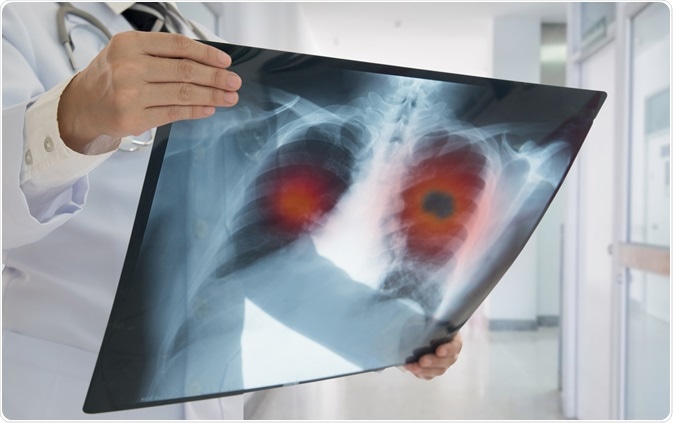Where to buy cheap proventil supreme suppliers without prescription
The pathogenesis of lung cancer is initiated the either by the activation of oncogenes or the inactivation of tumor suppressor genes, which leads to uncontrolled replication and growth of the cells in the lungs. There are several factors that may lead to these genetic mutations and they may be inherited from parents or acquired by exposure to carcinogens.
 Image Credit: create jobs 51 / Shutterstock.com
Image Credit: create jobs 51 / Shutterstock.com
Types of lung cancer
There are two broad types of lung cancer: small cell lung cancer and non-small cell lung cancer. The most common type, non-small cell lung cancer, is further divided into three subtypes: adenocarcinoma, squamous cell carcinoma, and large cell lung carcinoma, according to the area of the lungs affected.
When discussing the pathogenesis of lung cancer, it is essential to differentiate between the different types, as their genetics and biology are noticeably distinct.
Small cell lung cancer is almost exclusively caused by exposure to cigarette smoke and it is rare for a non-smoker to be affected by this type. Non-small cell lung cancer has a variety of causes including cigarette smoke and various other environmental factors.
Specific gene mutations
Each of the different types of lung cancer has certain gene mutations that are associated with its pathogenesis. For example, a mutation in K-ras proto-oncogenes accounts for 10-30% of lung adenocarcinomas, whereas a mutation in EML4-ALK tyrosine kinase accounts for 4% of non-small-cell lung carcinomas.
Epidermal growth factor receptor (EGFR) plays a role in the regulation of cell multiplication, apoptosis, angiogenesis and tumor invasion. Genetic mutations that lead to the upregulation of EGFR are commonly observed in non-small cell lung carcinoma, which explains the use of EGFR-inhibitors in the treatment of the disease.
Other genes that are thought to play a role in the pathogenesis of lung cancer include c-MET, NKX2-1, LKB1, PIK3CA and BRAF.
Approximately 8% of cases of lung cancer are thought to be caused by an inherited genetic factor, accounting for a 2.4 times greater relative risk for individuals with relatives with the disease than the general population. In particular, polymorphisms on chromosome 6,6 and 15 are associated with an increased risk of lung cancer.
Environmental carcinogens
Smoking is the primary risk factor for lung cancer and is intricately involved in the pathogenesis of many cases of the disease. Approximately 85% of cases of lung cancer are directly attributable to smoking habits, and it is also associated with 70-90% of deaths due the lung cancer.
The smoke from cigarettes contains 73 identified carcinogens, with the possibility of others that are not yet known. These include substances such as benzopyrene, NNK, 1,3-butadiene and polonium-210.
Passive smoking can also have a notable effect as a risk factor for non-smokers that live or work in an environment with people who smoke. Studies have indicated that the risk of lung cancer may rise by 15-30% for individuals that are exposed to cigarette smoke.
Radon gas is produced in the process of radioactive radium breakdown, which is a product of uranium decay. This gas has the potential to ionize genetic material and cause genetic mutations that lead to lung cancer. The levels of radon gas vary greatly in different regions of the world, but it is the second leading cause of lung cancer in the United States, following smoking.
Asbestos can also lead to an increased risk of lung cancer and exposure to both asbestos and tobacco smoke has a synergistic effect of the pathogenesis.
Pollution in the air is associated with an increased risk of lung cancer, particularly air with a high concentration of fine particulates (PM2.5), sulfate aerosols or nitrogen dioxide.
Additionally, there is some evidence that exposure to aluminum, cadmium, chromium, beryllium, iron, nickel, arsenic, hematite, coal, diesel, radiation, silica and toxic dust may cause lung cancer.
Further research
We currently have a relatively good understanding of lung cancer pathogenesis, including the cellular and molecular genetic changes that are associated with the disease.
However, there remain several aspects of the condition that have not been clearly evaluated, including the progression from normal to neoplastic cells. Further research in this area would enable earlier detection of the disease and possibly allow it to be prevented through chemotherapy methods.
References
- http://www.ncbi.nlm.nih.gov/pmc/articles/PMC2715312/
- http://emedicine.medscape.com/article/279960-overview#a3
- http://www.ncbi.nlm.nih.gov/pubmed/21361067
- https://www.youtube.com/watch?v=J5UfBV18Bis
Further Reading
- All Lung Cancer Content
- Lung Cancer
- Lung Cancer Causes
- Lung Cancer Symptoms
- Lung Cancer Diagnosis
Last Updated: Jan 27, 2021

Written by
Yolanda Smith
Yolanda graduated with a Bachelor of Pharmacy at the University of South Australia and has experience working in both Australia and Italy. She is passionate about how medicine, diet and lifestyle affect our health and enjoys helping people understand this. In her spare time she loves to explore the world and learn about new cultures and languages.
Source: Read Full Article
